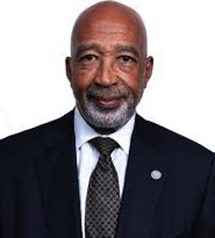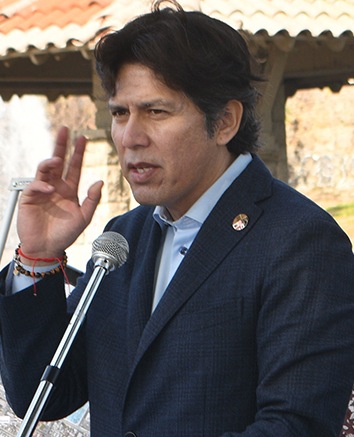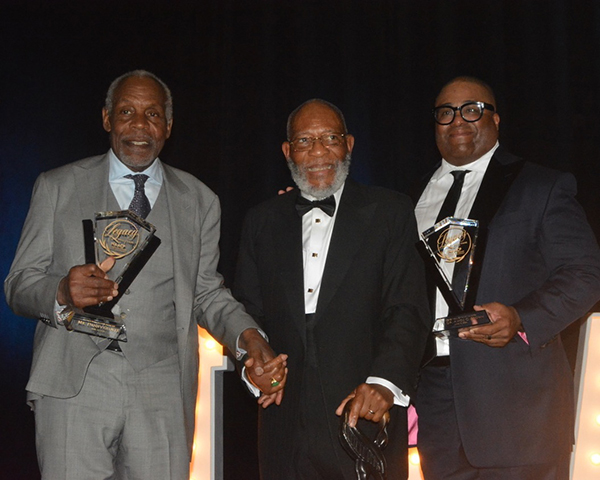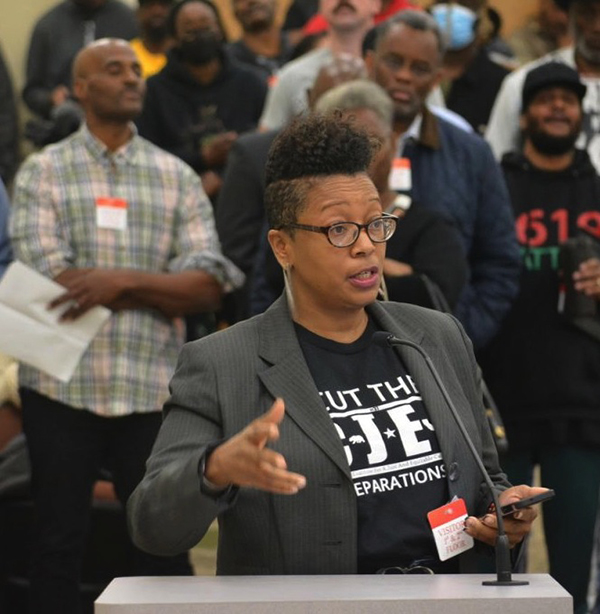By Shirley Hawkins
Contributing Writer
LOS ANGELES — The Los Angeles Urban League celebrated a milestone Feb. 27 with a virtual celebration marking the organization’s 100th anniversary.
The organization has provided training and job opportunities, tackled social justice issues and fought for equal rights and economic empowerment for African Americans for the last 100 years and held a virtual panel discussion with several stakeholders in the community to mark the occasion, one of many events planned throughout the year to celebrate the milestone.
Panelists included Michael Lawson, president and CEO of the Los Angeles Urban League; Sandra Evers-Manly, vice president of global corporate responsibility at Northrop Grumman and founder of the Black Hollywood Educational Research Center; the Rev. James Lawson, pastor and legendary civil rights leader; and Pamela Bakewell. Serving as moderator was KNBC journalist Beverly White.
White asked how the Urban League can be sustained as it continues into the future.
Lawson said that pursuing entrepreneurship in the coming years will be important.
“We have to pivot towards the 21st century,” he said. “We will continue to do the job training, but we have to move more into entrepreneurship in every area. This pandemic has been devastating to the entrepreneurs in this city and I cannot say enough about our staff and our funders who allowed us to keep a lot of these businesses alive when they would not have survived.
Lawson said he would like to see Black Los Angeles recreate Black Wall Street that once thrived in Greenwood, Oklahoma but was destroyed by angry whites in the early 20th century.
“We want to create a situation where a dollar dropped in our community stays in our community,” Lawson said. “The example that I use is Koreatown. I have all the respect in the world for what they have done. A dollar dropped in Koreatown stays there for 50 days. Our goal is to get back to what our forefathers were already doing and go beyond.”
White asked Evers-Manly how corporate America could create better outcomes for the Urban League and organizations like it.
“I think that when we talk about diversity, equity and inclusion, we’ve got to make sure that we as African Americans get room at the table and that we are going to be part of the decisions that are being made,” Evers-Manly said. “We’ve got to make sure that we are in those C suites and we’ve also got to make sure that we have individuals who look like us employed in jobs that are going to be life sustaining. Jobs in the sciences, technology, engineering and development.
“So what I think we need to see and what we need from the Urban League is to make sure that we are holding corporate America accountable for hiring and their investments in our communities especially our businesses, but also in our non-profits and in our educational institutions.”
White asked Rev. Lawson how the Urban League can continue to sustain in real time.
“The most important thing is for the Urban League to continue to be part of the struggle because the work still remains to be done which is a monumental task and cannot be done by any one section of our community in our country,” he said.
Michael Lawson agreed.
“We can’t do this alone,” he said. “The work has to affect a broad swath of people and we are part of those collaborations. Reverend Lawson set the table. He wrote the blueprint that we are trying to follow and the blueprint includes collaboration.
“We are working with multiple groups including spending a specific amount of time working to stop the anti-Asian hate crimes that are going on, not just in L. A., but in other cities because this affects all of us.”
“In the 50s, 60s and 70s, our goal was to dismantle the laws, customs and the structure of racism,” Rev. Lawson added. “We did not complete that task in the 20th century. It still has to be done. So the point of any movement is going to be as to whether it is doing the job to end the structure of torture and cruelty while at the same time helping the society economically and politically with new ways of justice and truth.”
White asked Evers-Manly about her hopes for the future in Hollywood.
“As we enter into awards season, are you hopeful for deeper and better truth telling going forward?” White asked.
“I will always be hopeful but there’s much work to be done,” Evers-Manly answered. “On the eve of the Golden Globes held by the Hollywood Foreign Press, it was found that out of 87 members, there is not one Black voter. As a result, you can see that in the nominations.
“We need Black people behind the scenes and in charge of our stories.”
Pausing, she added, “I would be remiss if I didn’t talk about the significance of the Black press (in Los Angeles) and how we should be supporting them. The Black press tells our stories and they’re with us daily. We need to subscribe to Black publications because those are truly the soldiers without swords who are telling our stories.”
Rev. Lawson emphasized the importance of the Urban League raising sufficient funds to hire more full-time staff. “The work the Urban League does needs the attention of full-time people,” he said. “Especially a staff that will get our white fellow citizens to see some of the issues (we face) and to support the changes that are needed because many white people do not see the issues (facing us) in L.A. or elsewhere.”
He then issued a challenge.
“If the people who call themselves philanthropists were really concerned about this nation’s future, they would take a few of those billions of dollars and establish a million dollar endowment for the Urban League in Los Angeles and in other cities in order to make our nation a just society.”
Shirley Hawkins is a freelance reporter for Wave Newspapers. She can be reached at metropressnews@gmail.com.













